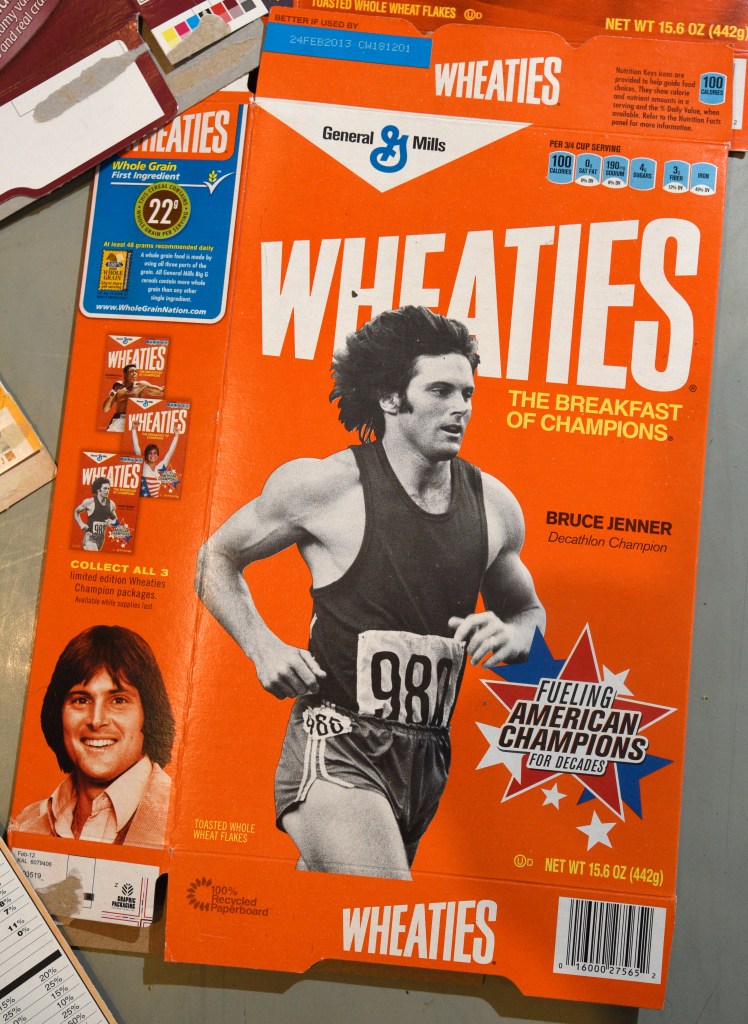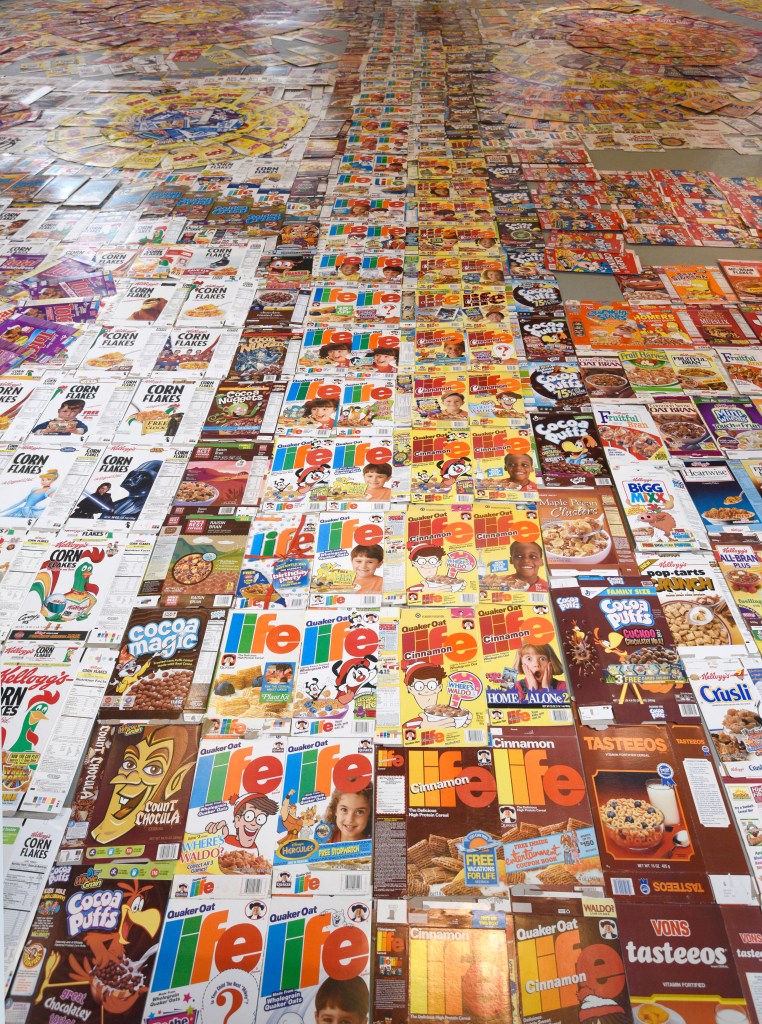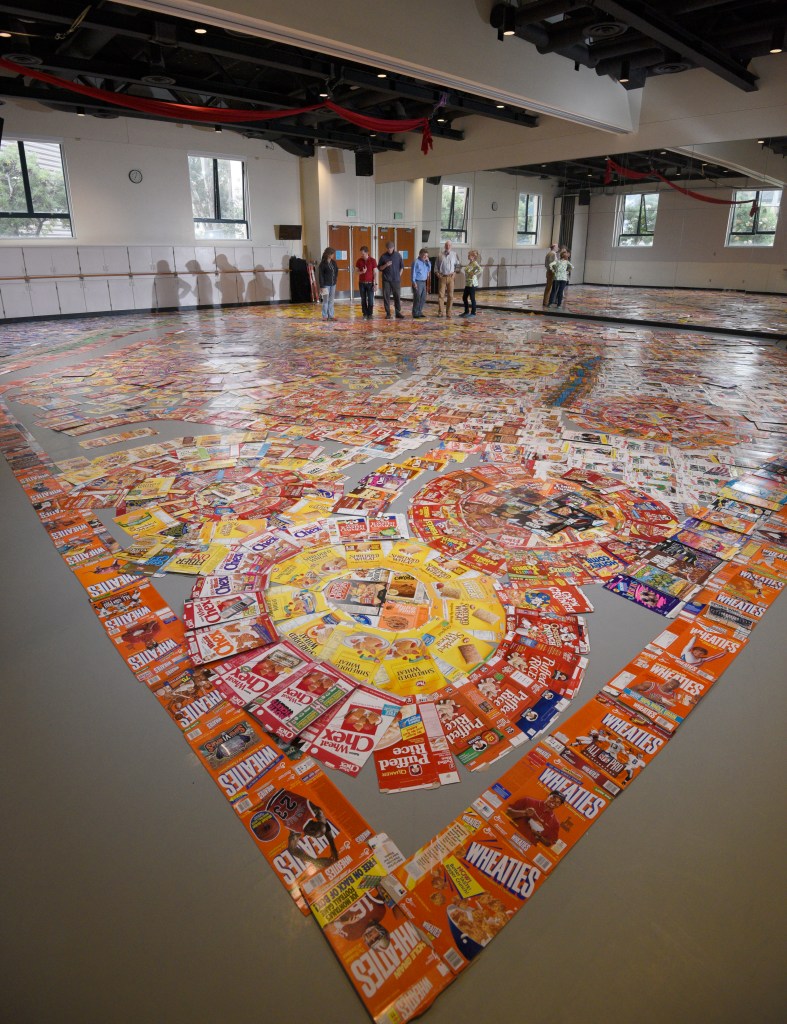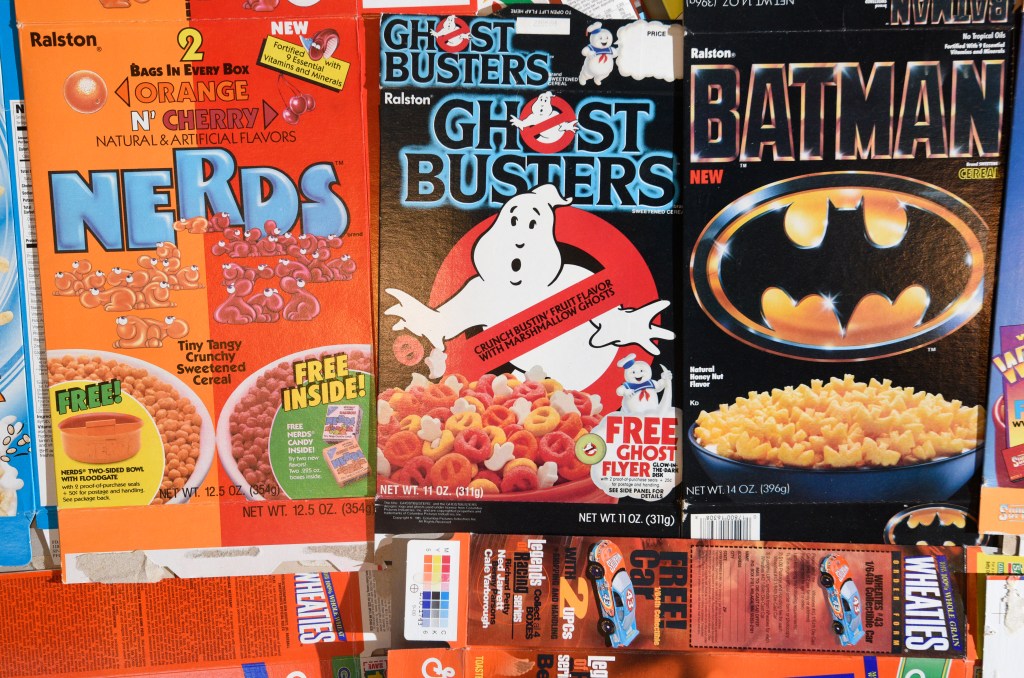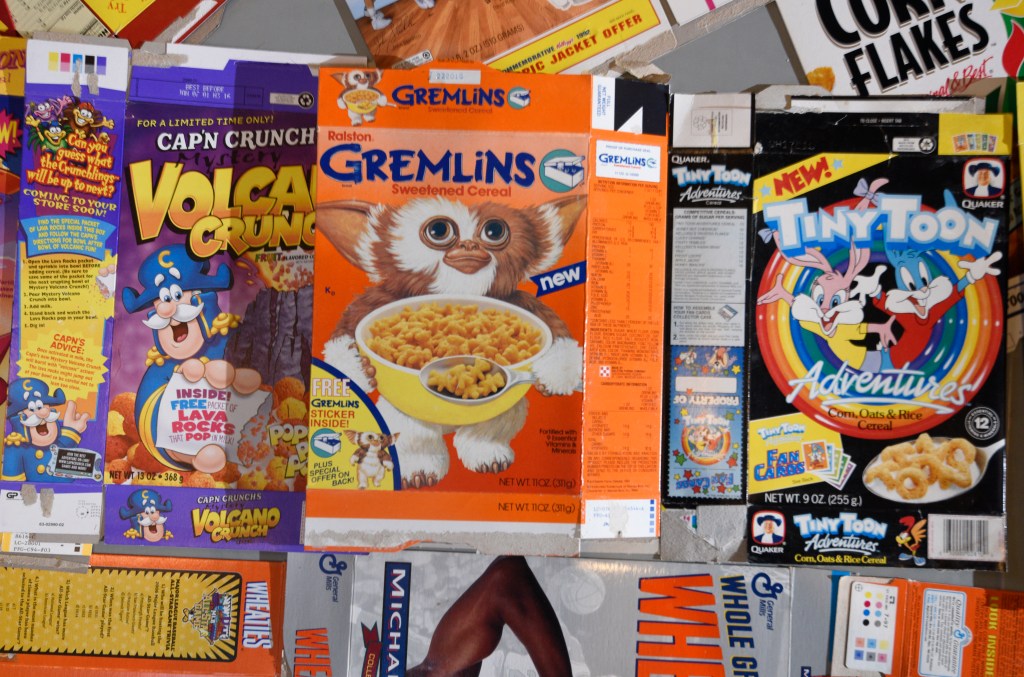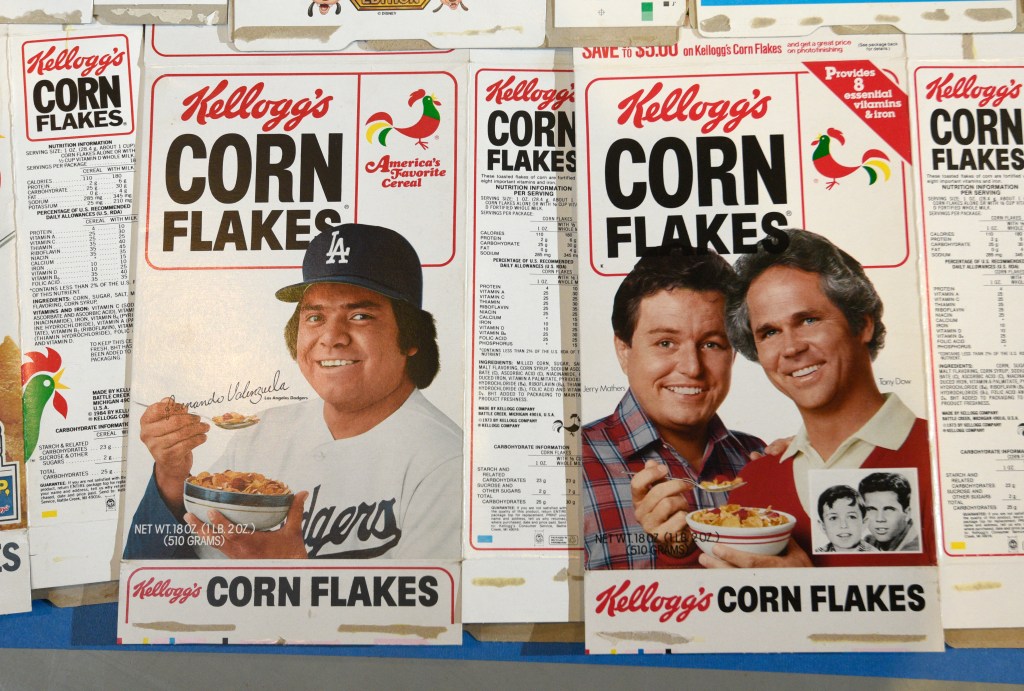Cereal Box Collection Displayed
William Davies King Presents the ‘Tree of Life’
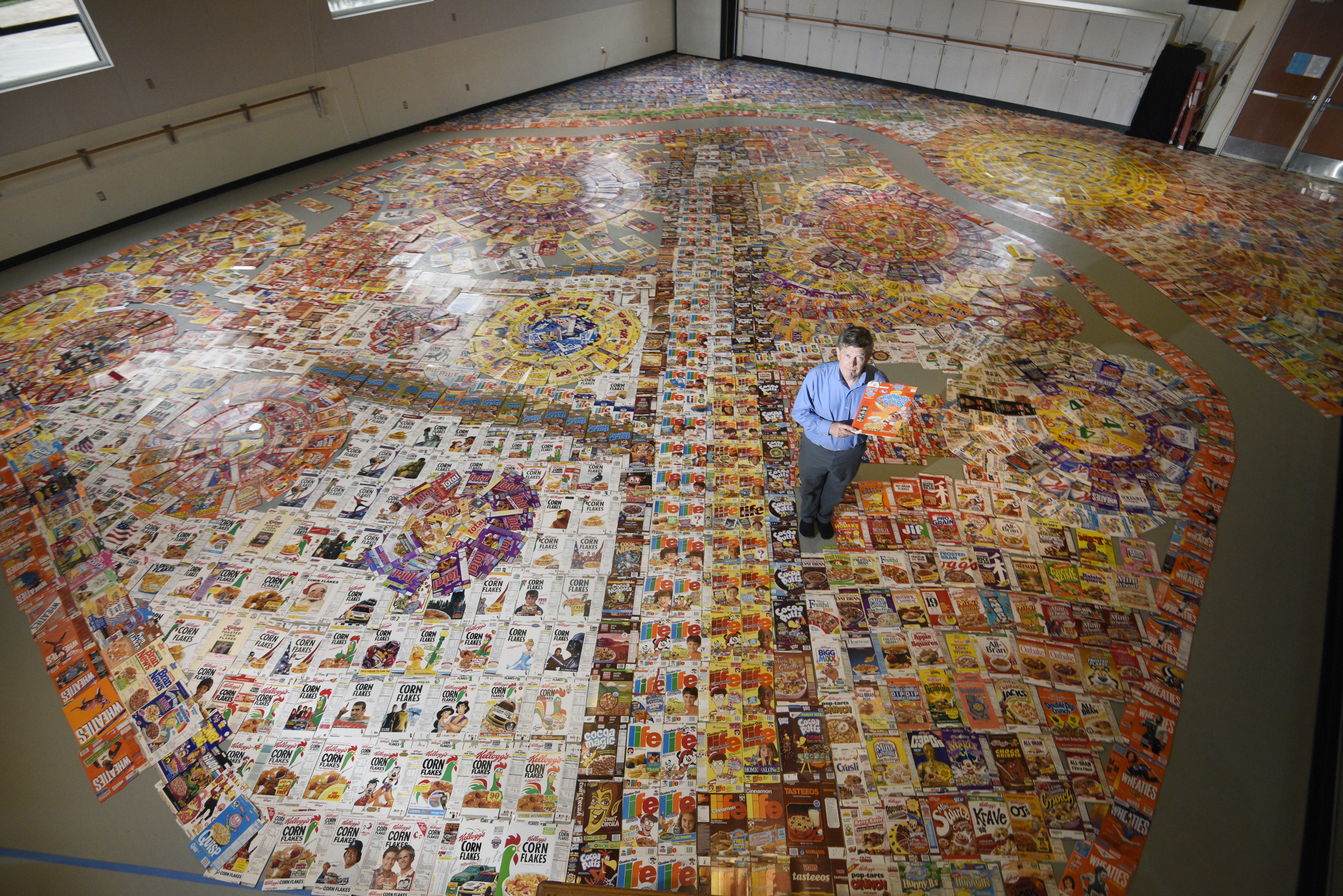
Visitors to the theater and dance department at UCSB have come to expect the unexpected, but on Thursday, June 20, something was happening in one of the dance studios that very few of even their most assiduous observers could have predicted. Tree of Life, a one-day performance/presentation by Distinguished Professor of Theater William Davies King featured more than 2,000 cereal boxes, each one different, laid out in a variety of patterns until they covered the entire floor. This is the second time that King has presented these carefully preserved consumer packages; the last time was in 2002, and the collection has grown considerably since then. All the familiar brands were represented — Cheerios, Wheaties, Rice Krispies, and Corn Flakes — plus many that one had either forgotten or had never heard of in the first place. Kellogg’s OJ’s anyone? How about a nice bowl of General Mills Reese’s Puffs?
The cereal boxes are only one aspect of King’s vast collection of consumer product labels. He has been cruising the aisles of supermarkets for decades with an eye for new packaging and gently releasing labels from their products and storing them in binders since the 1980s. The story of his “collection of nothing,” as he prefers to call it, plus an extraordinarily persistent and erudite attempt to make sense of his activities, can be found in his 2008 memoir, also called Collections of Nothing and published by the prestigious University of Chicago Press.
King ordinarily stakes his claim as a university professor of theater on the scholarly side of the scholarship/performance divide. He is a renowned expert on the life and work of American playwright Eugene O’Neill, and he has also written a book on Wallace Shawn. He teaches a popular UCSB course on ancient drama and has recently begun sharing his thoughts about collecting in a course on that subject as well.
On this special day, King was joined by his daughters, Ruthie and Eva King, who helped him lay out the cereal boxes in imaginative designs, and by a childhood friend, the author William Walsh Crawford Jr. Crawford and King met at Phillips Academy Andover where they shared an interest in theater. After several decades had passed in which the pair had limited contact, they discovered that at the same time that King was amassing what is surely the definitive collection of American cereal boxes, Crawford had been researching and writing Cerealizing America: The Unsweetened Story of American Breakfast Cereal, which was published in 1995. Crawford was on hand at UCSB on Thursday, cheerfully manning an impressive merchandise table that featured a catalogue for the Tree of Life performance that the pair coauthored.
The exhibit offered enjoyment on multiple levels: as visual stimulation, as consumer history, and as cultural artifact. King spent the whole day answering questions and guiding the arrangement process. As with many significant works of art and scholarship, the more you know about King’s project, the more interesting it becomes. Collections of Nothing stands as one of the most literate, self-aware, and idiosyncratic memoirs of the era, bearing resemblances not only to the work of King’s favorite contemporary playwrights, such as Shawn and Will Eno, but also to such literary legends as the late Roland Barthes and his American academic sometime exegete, D. A. Miller of UC Berkeley.
The book’s style reflects its author’s conviction that true intimacy requires the rejection of nostalgia. He insists on the idea that his collections, no matter how painstakingly assembled and preserved, amount to “nothing” in order to offer a committed critique of the ordinary goals of mainstream collectors. The presence of Crawford, who was happy to talk cereal history with anyone who was interested, added to the sense that this was a special occasion, one in which the will to share knowledge had joined forces with an impulse to undermine the bureaucratic boundaries of scholarship and the commercial designs of connoisseurship.
Correction: An earlier version of this story incorrectly referred to William Davies King’s assistants on the project as his students; they are, in fact, his daughters, Ruthie and Eva King.

